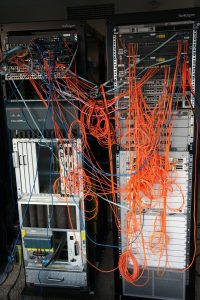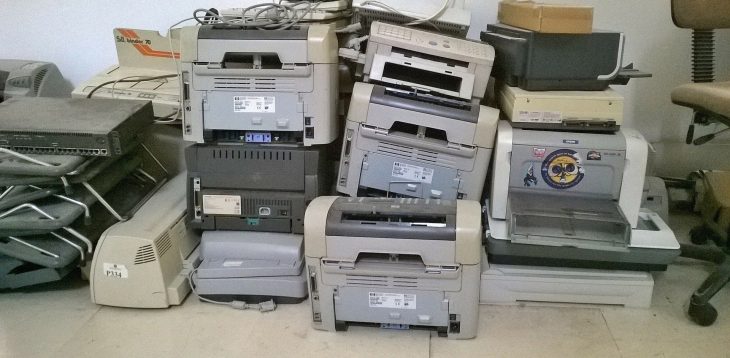Today is System Administrator Appreciation Day (SysAdminDay)

Modern IT encompasses a multitude of buzzwords: cloud computing, digitization, platforms, design thinking, Internet of Things, containering, to name but a few. With all these fancy terms, it’s easy to forget the real heroes who keep all the tech up and running, day in, day out. We’re talking, of course, about system administrators.
The realm of the IT Administrator

Sysadmins don’t have an easy time of it: in most companies, they lead a secluded existence, working in a confined space (often the basement), with only the hum of the server and the blue glow of their screens to keep them company. Rarely does anyone venture into their little realm, and when they do, it’s not for a quick chat, but to report an issue or confess to a major gaffe such as deleting the internet.
The Admin – a blessing for the staff

After years of training or a degree in computer science, you’d think that the type of problem sysadmins have to deal with on a daily basis would be highly complex in nature. After all, they’re tasked with looking after hundreds of computers, notebooks, servers and printers, managing the technology that keeps a company’s local and regional offices connected, making sure that the comms infrastructure (including the email servers) is permanently available, and administering a raft of important software products. And they really come into their own when things get complicated, taking time to explain with great enthusiasm the latest encryption methods, modern authentication, and the difference between backups and archives to the uninitiated user, who just smiles and nods in an effort to mask his/her ignorance. Unfortunately for sysadmins, the reality is often a lot less glamorous … and much more irritating. For most of their time is spent dealing with people rather than with complex technology.
Users sometimes ask an awful lot of an IT department, and that sometimes places the sysadmin in curious situations. They repair “broken” monitors by plugging them back into the grid, recover deleted text using highly complex but arcane key sequences such as Ctrl+Z, and keep email traffic flowing smoothly by shifting hundreds of emails created back in 2004 to the archive.
Show some love for your admins!

You might think that sysadmins would be assured the eternal gratitude of everyone in the company for all their help. Far from it. They’re often the scapegoat for problems, small and large, that crop up in the everyday IT landscape. If a user is having problems with the tech, it’s almost always the device or the software that’s to blame, never the user. And, as printers are notoriously unwilling to accept any blame, it’s the man or woman down in the basement who has to take the rap.
Long after their colleagues have left for home, it’s the system administrator who is left holding the fort. After all, someone has to make sure that the technology does its job around the clock. Thus, a lonely light in an otherwise silent building in the middle of the night is a sign that a sysadmin is busy on the night shift. On Christmas Eve, sysadmins will have their cell phones at the ready – a mail server has just installed a new update and there are problems. Always on call, day and night – it’s just the name of the game.
Why do system administrators put up with all this? Because, despite everything, they love their job: they’re good at it, and they’re very much needed. Without constant maintenance, the company’s IT would fall apart, colleagues would spend more time struggling with their devices than with their actual tasks, deleted text would disappear into the ether, and the business would eventually go belly-up. So today, on System Administrator Appreciation Day, please make sure to thank your sysadmin – the silent hero behind your company’s day-to-day operations.
Other interesting articles
- What is Email Archiving?
- Why Archive Emails?– An Overview for IT Decision-Makers
- Email Archiving vs. Backups – The Critical Differences







